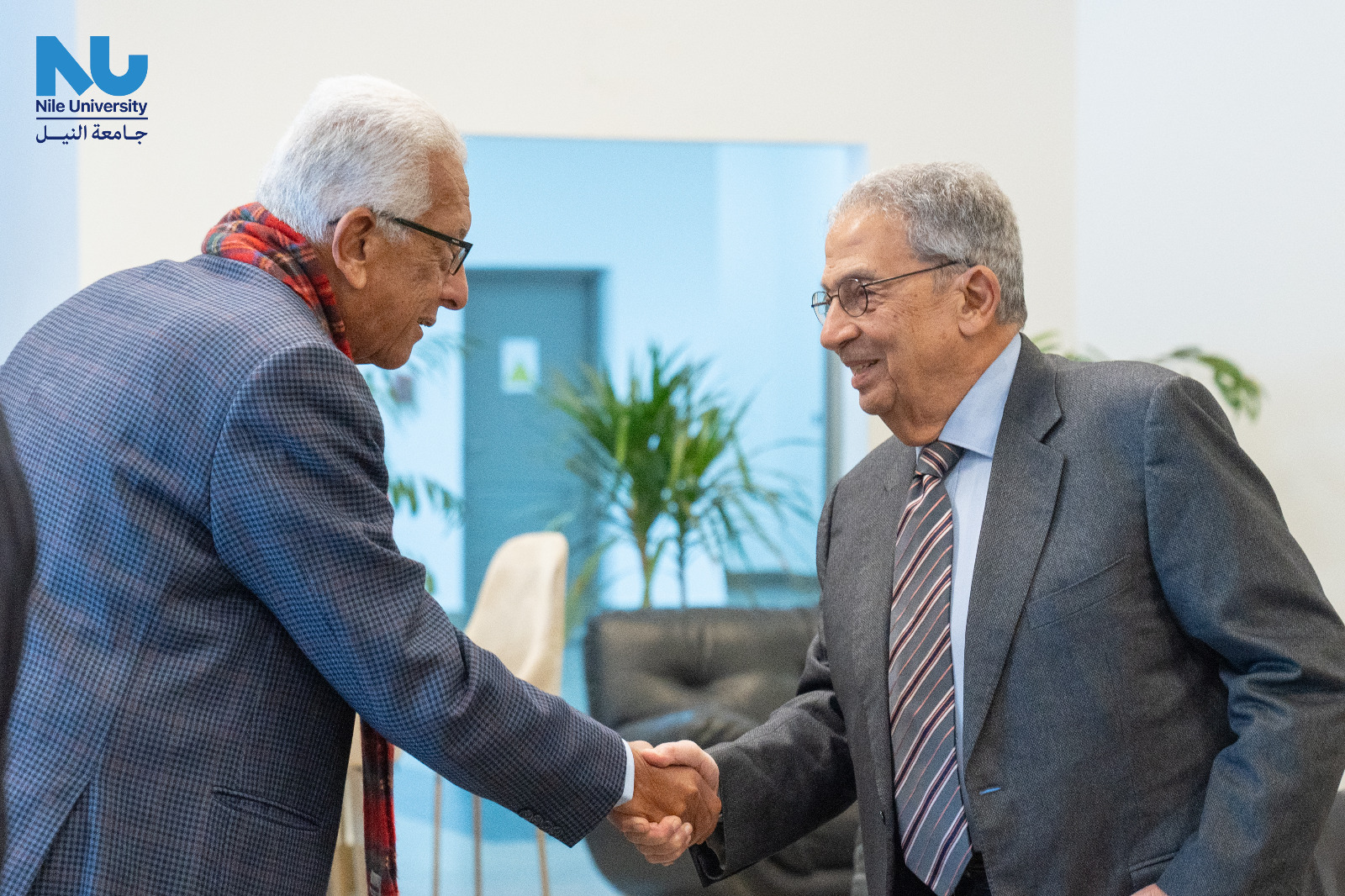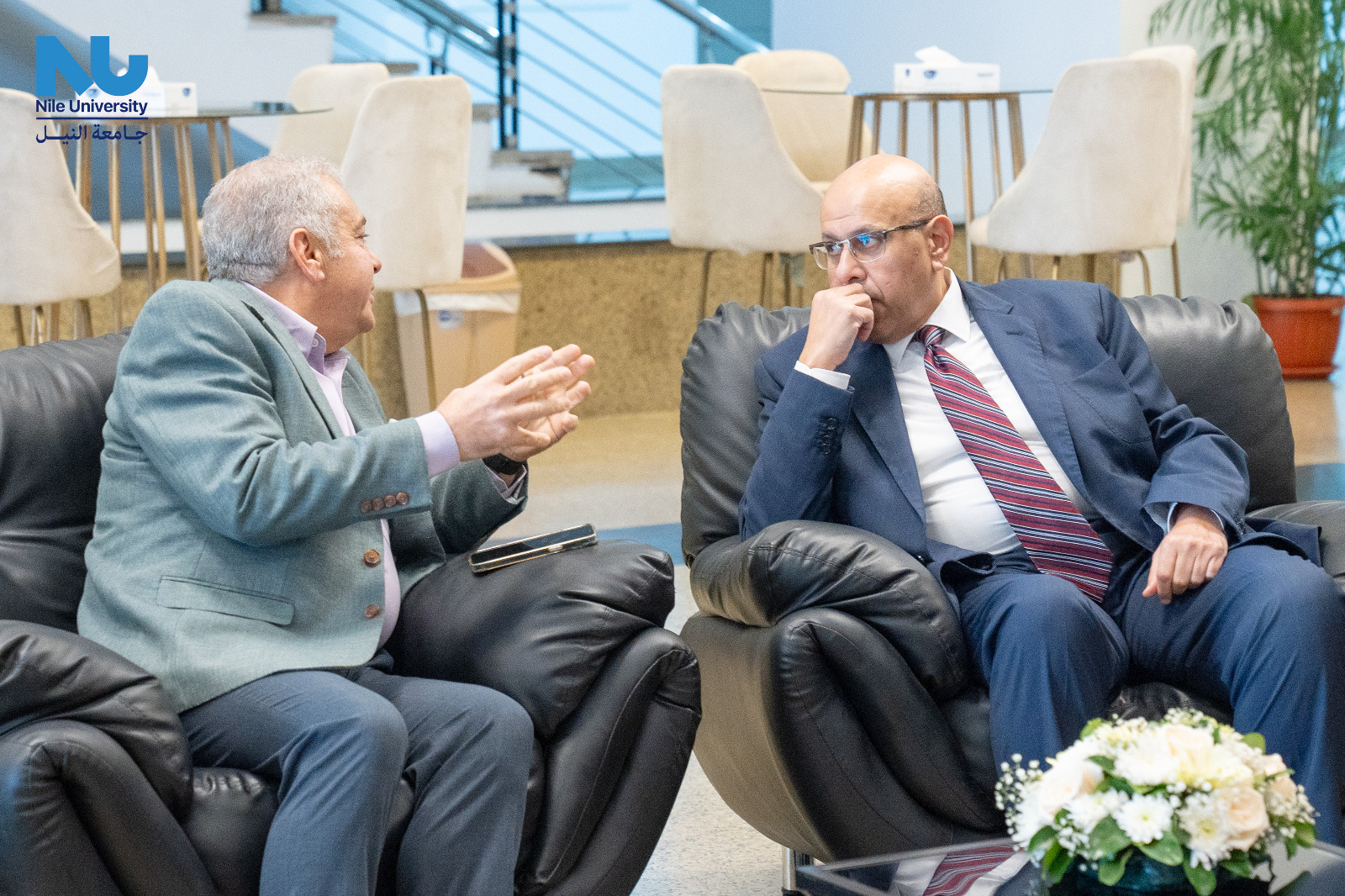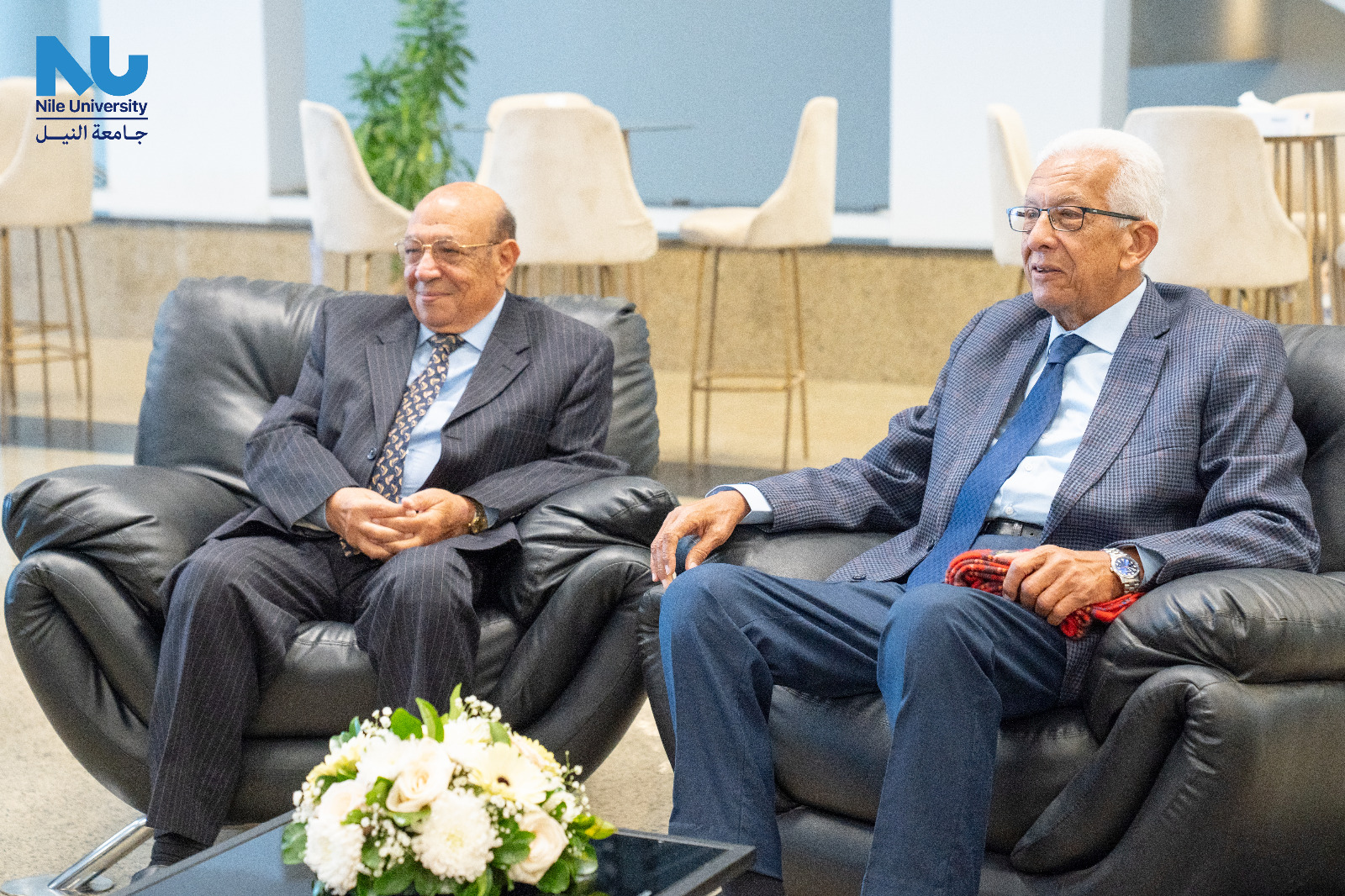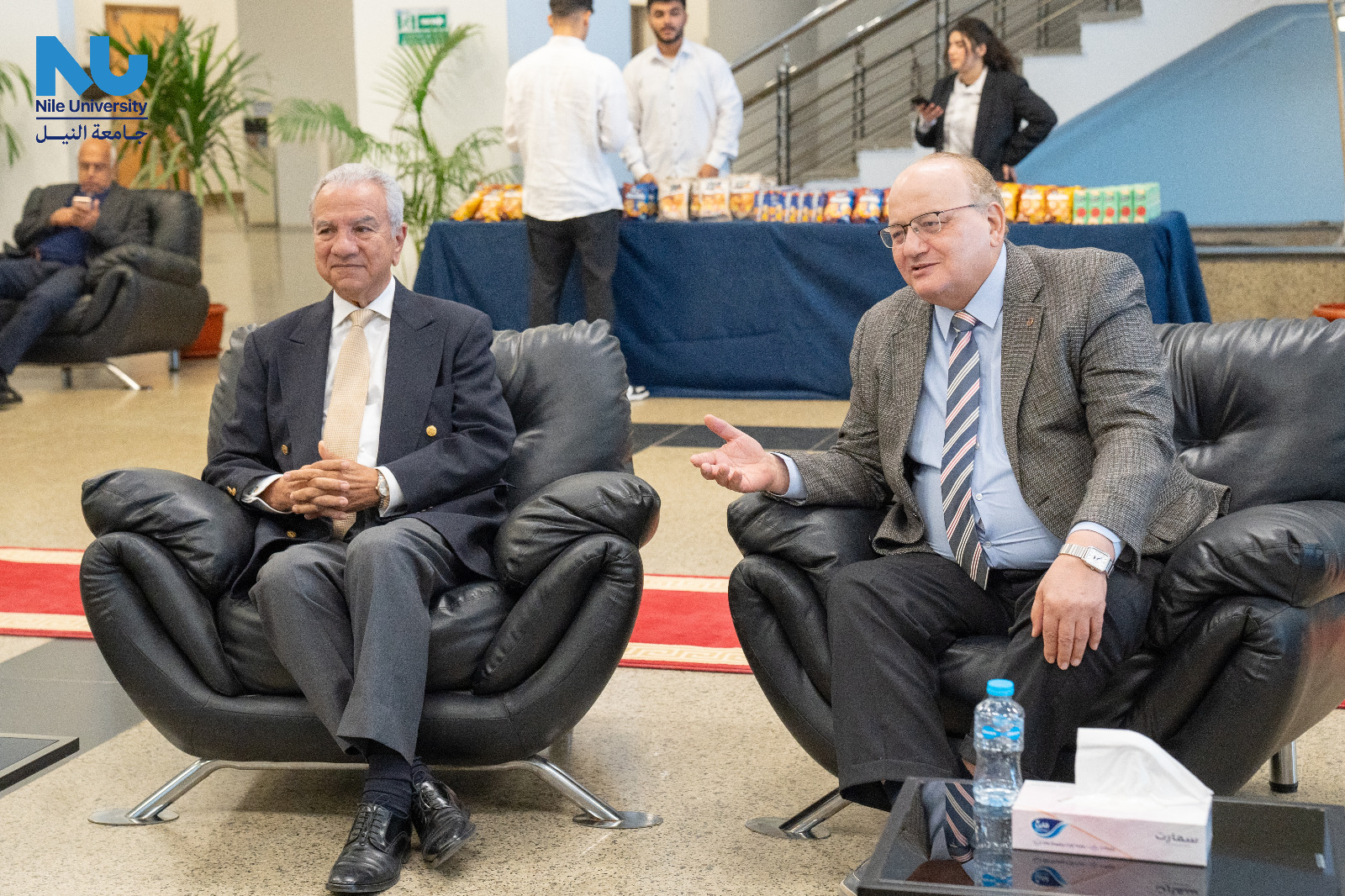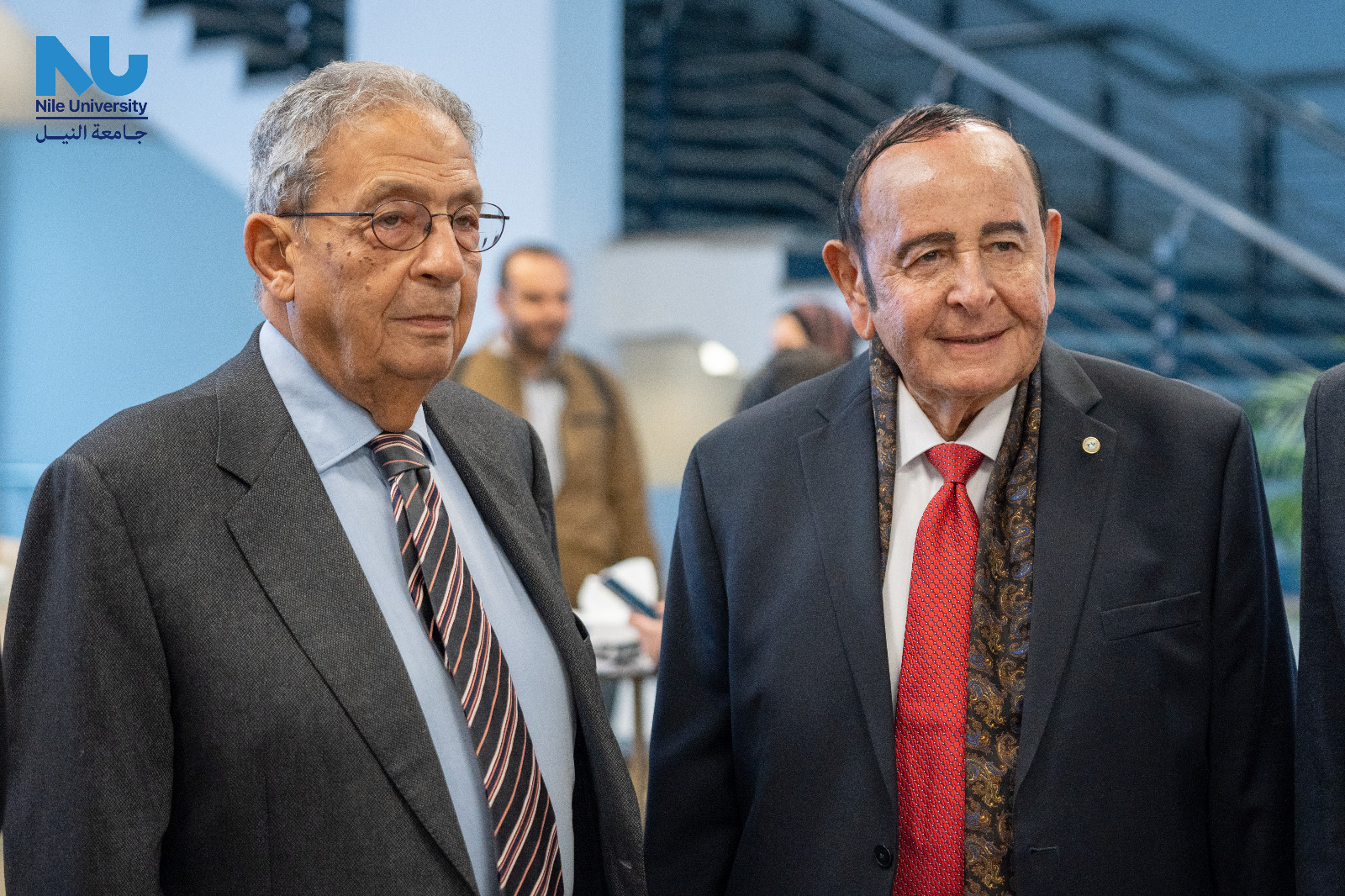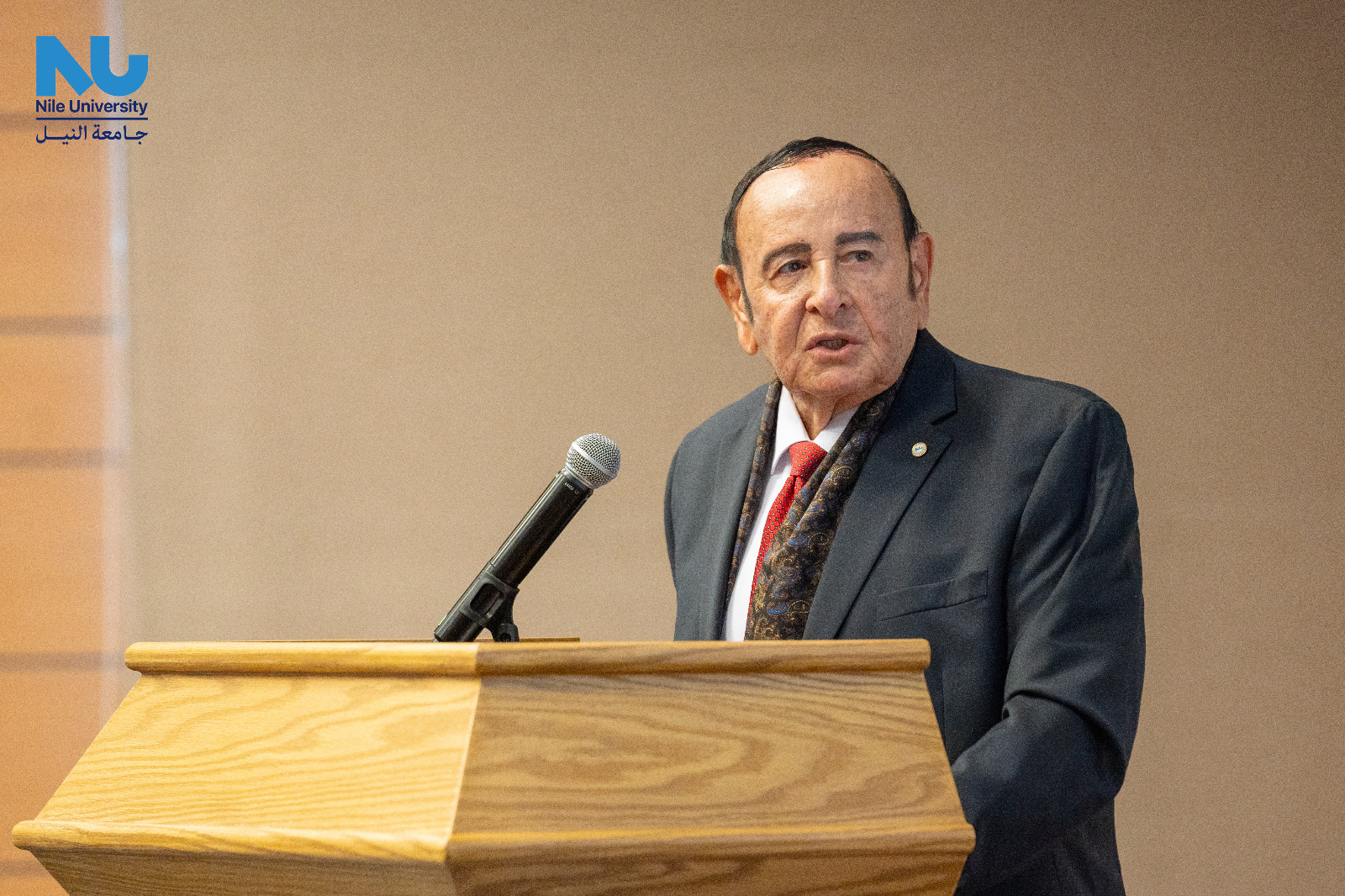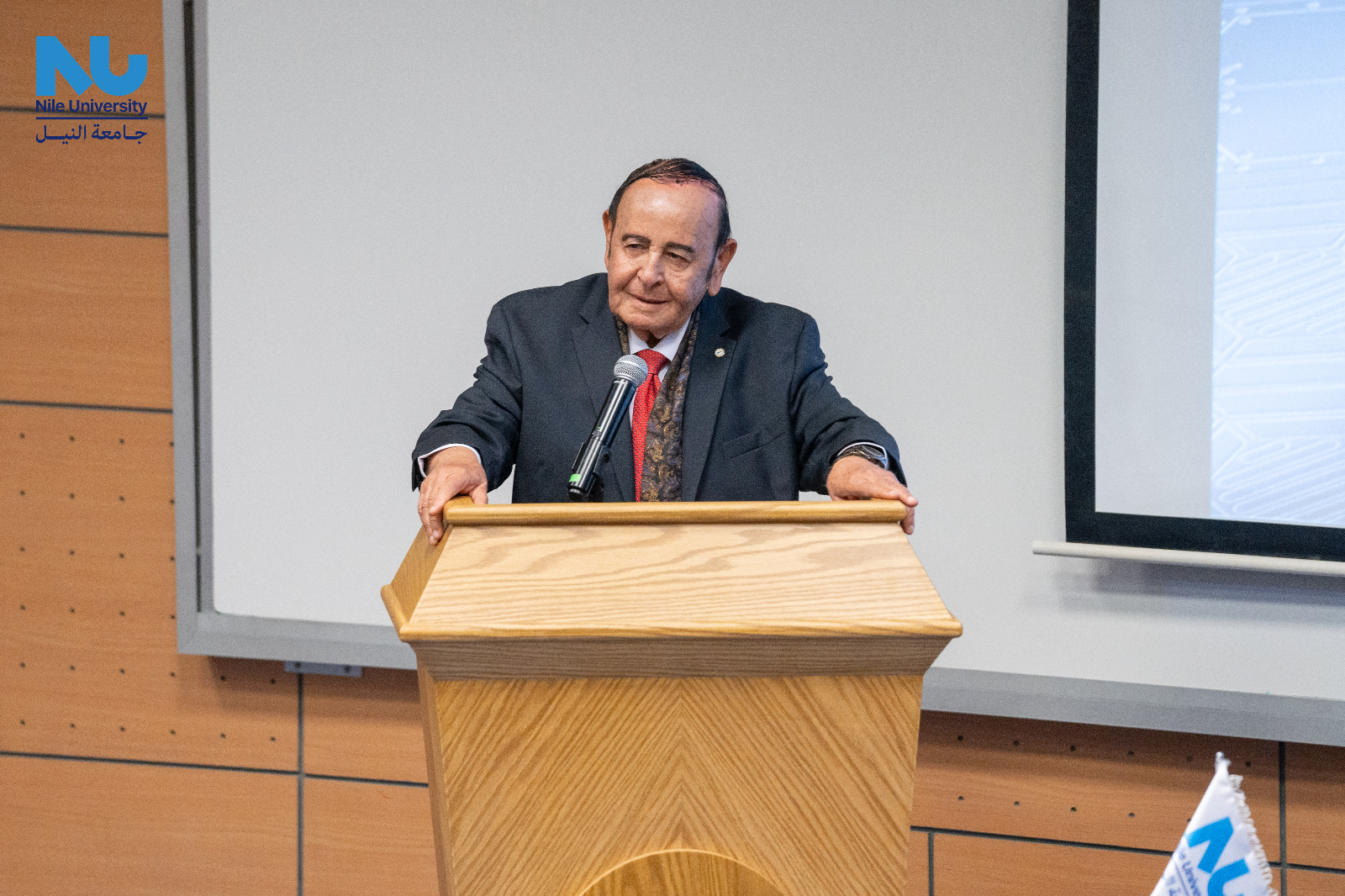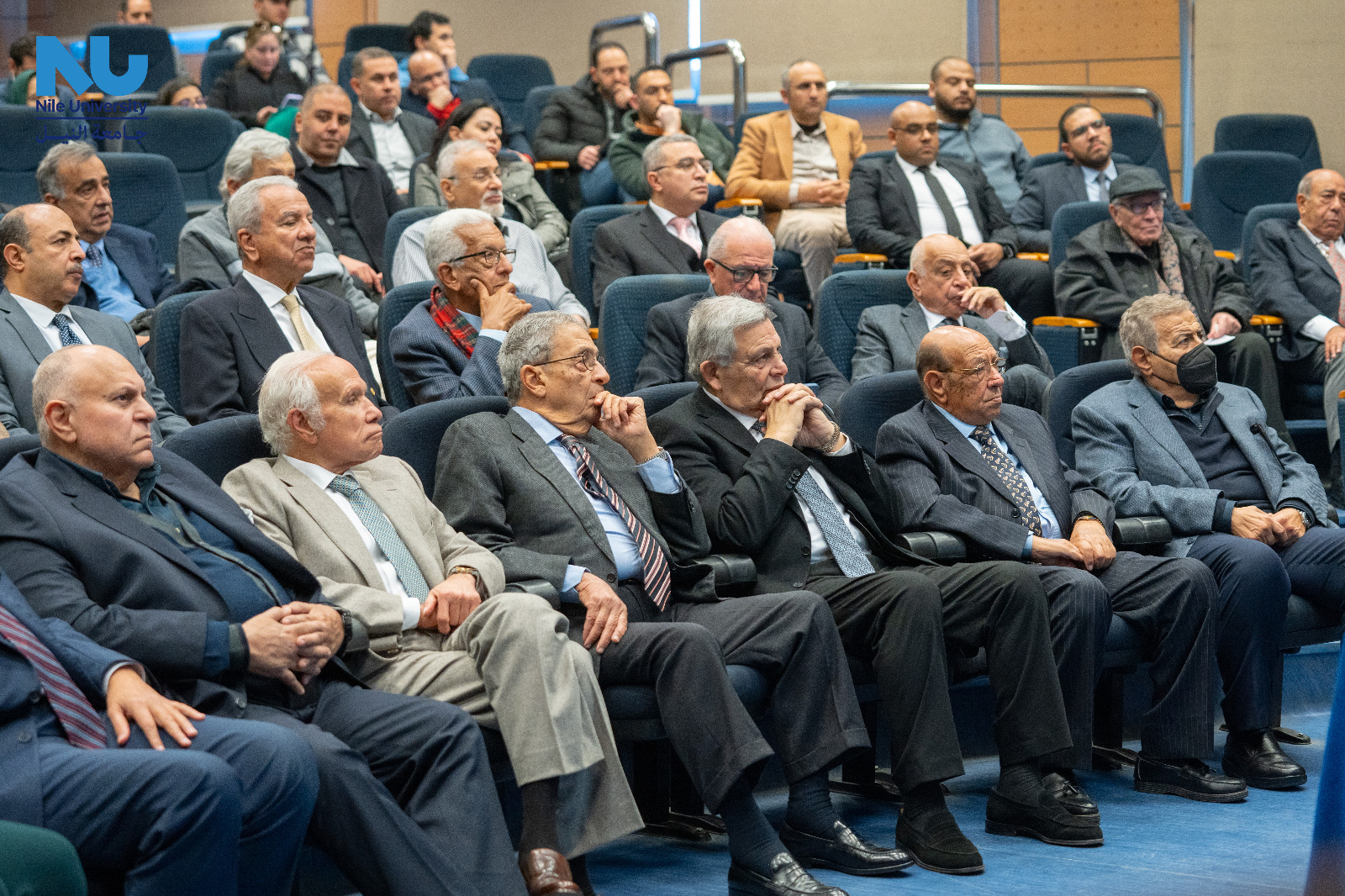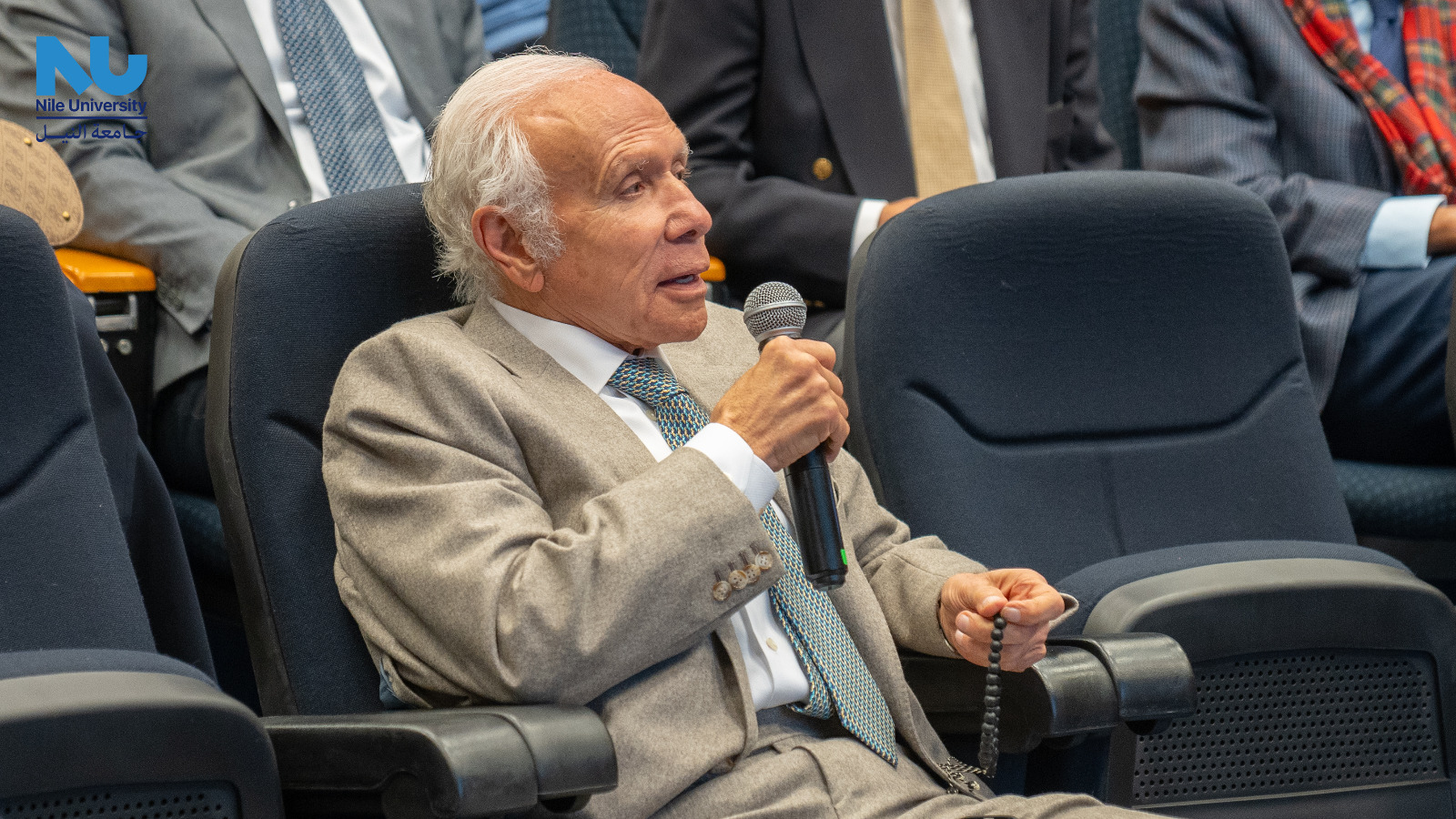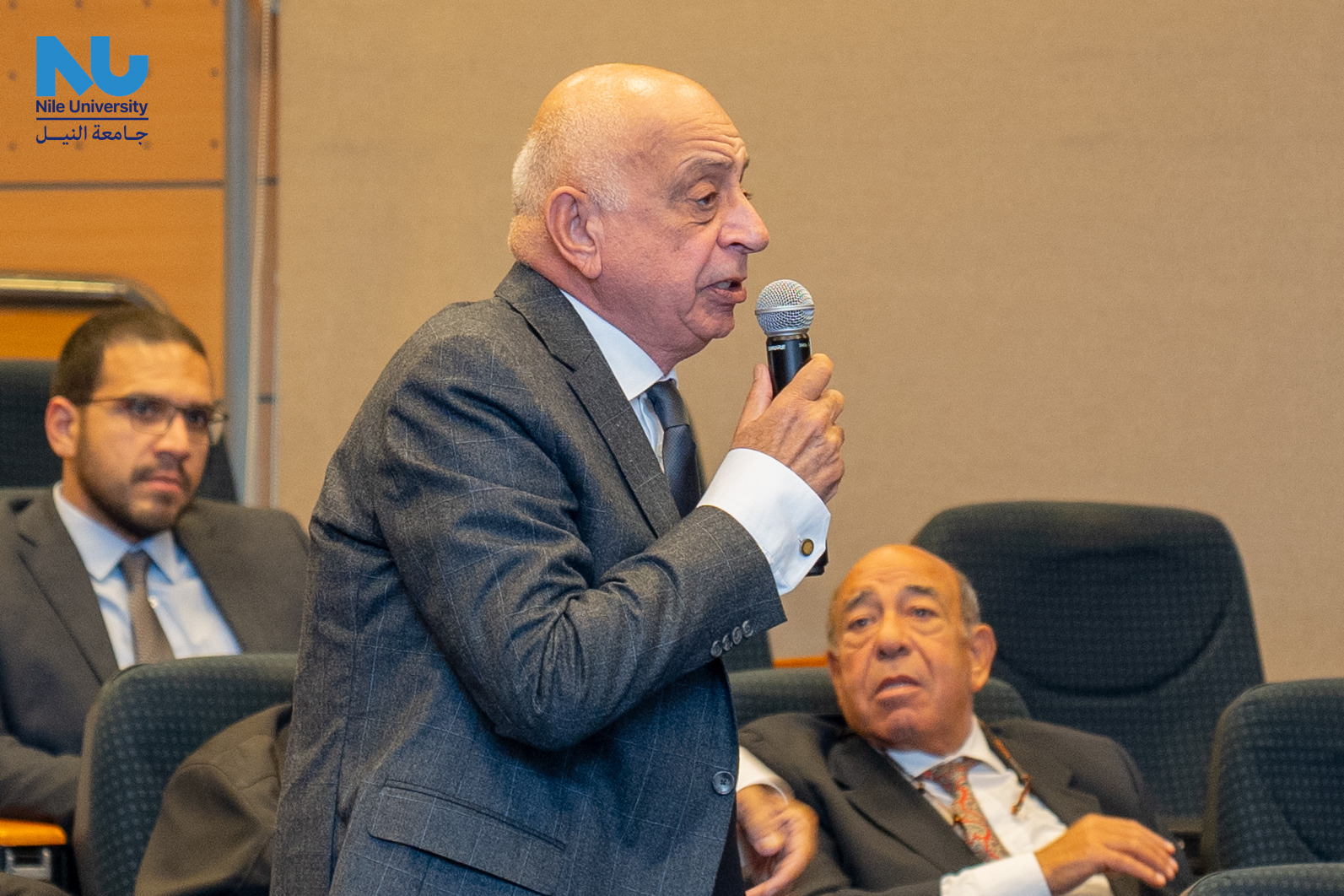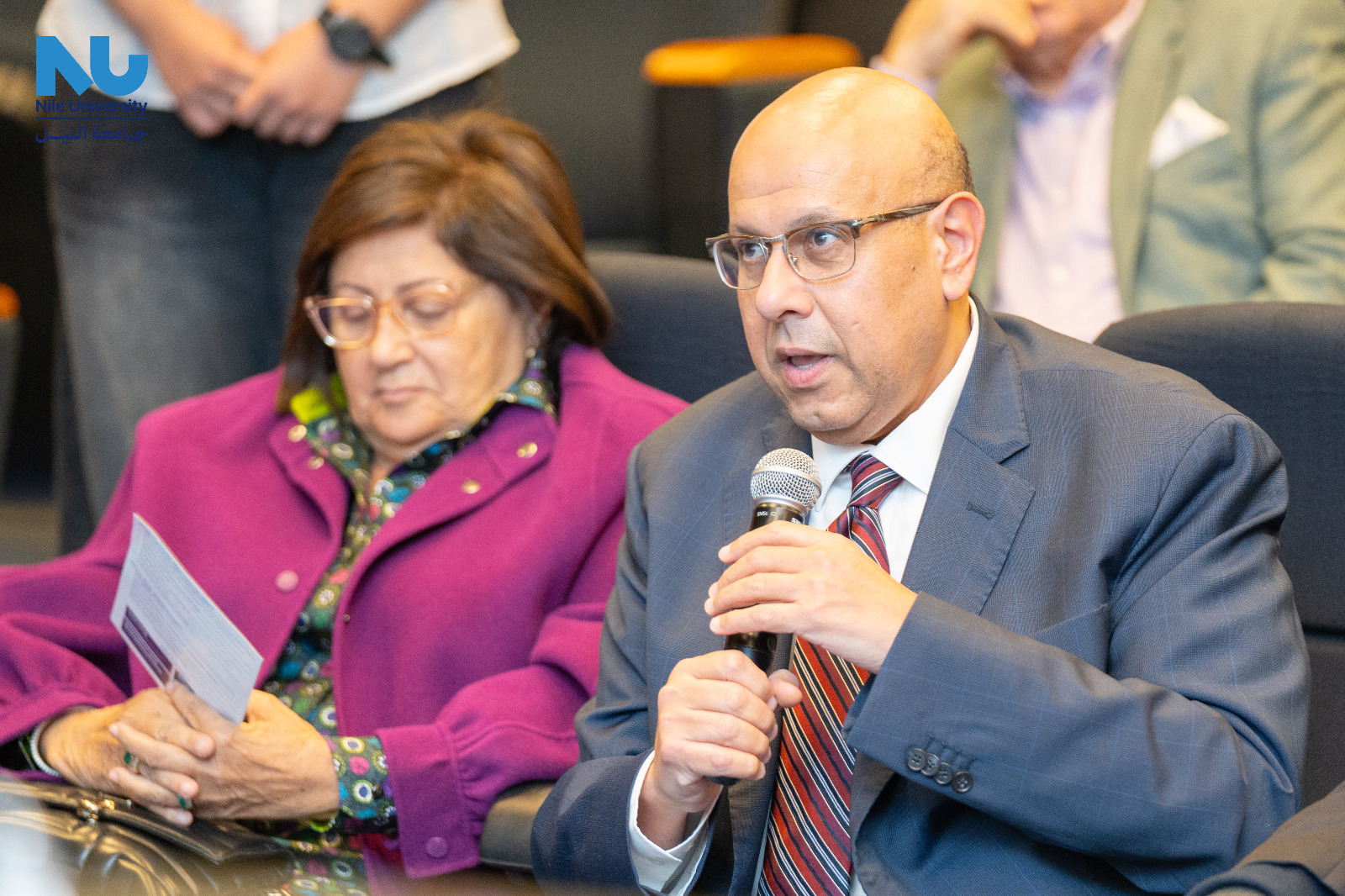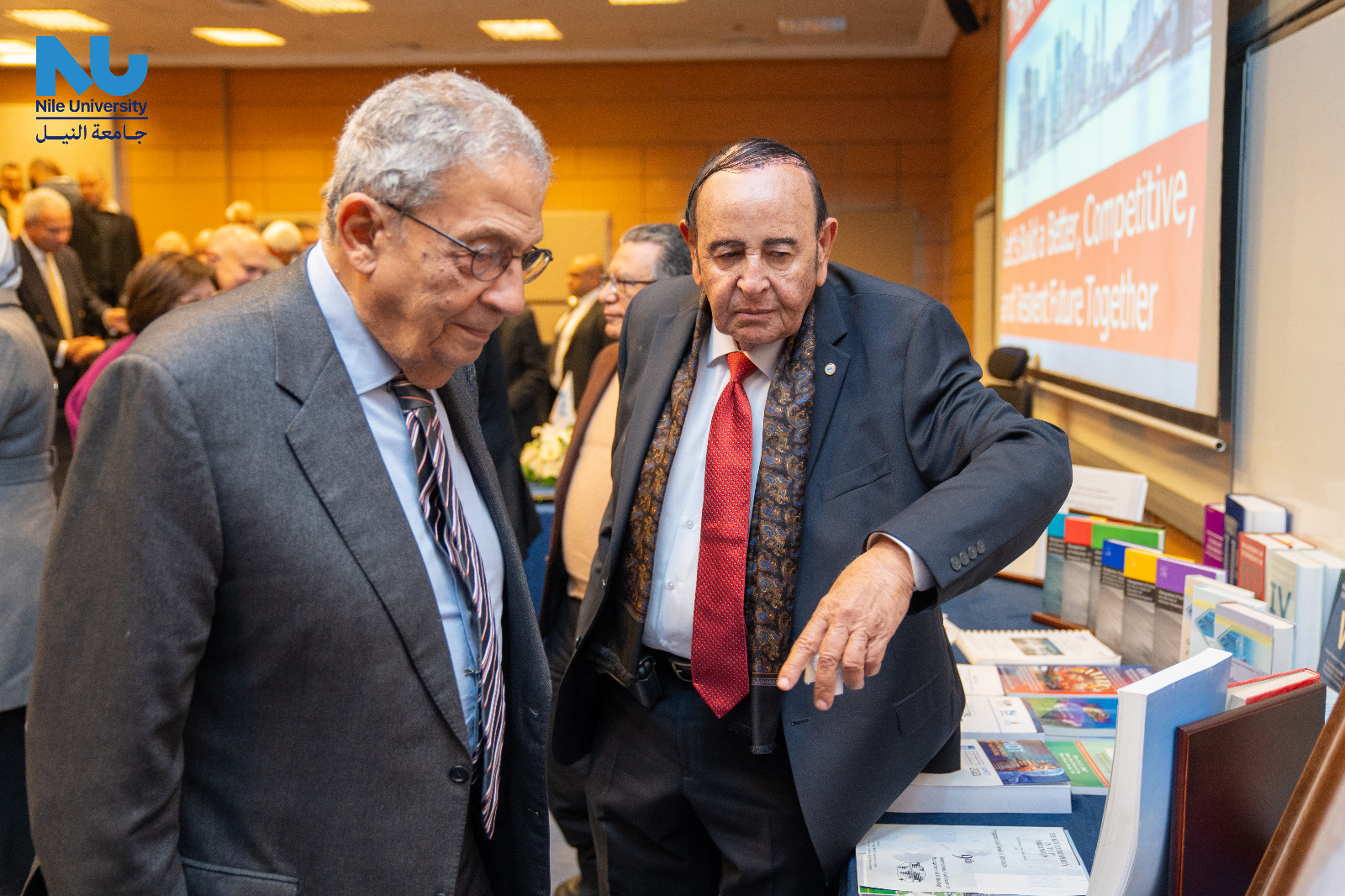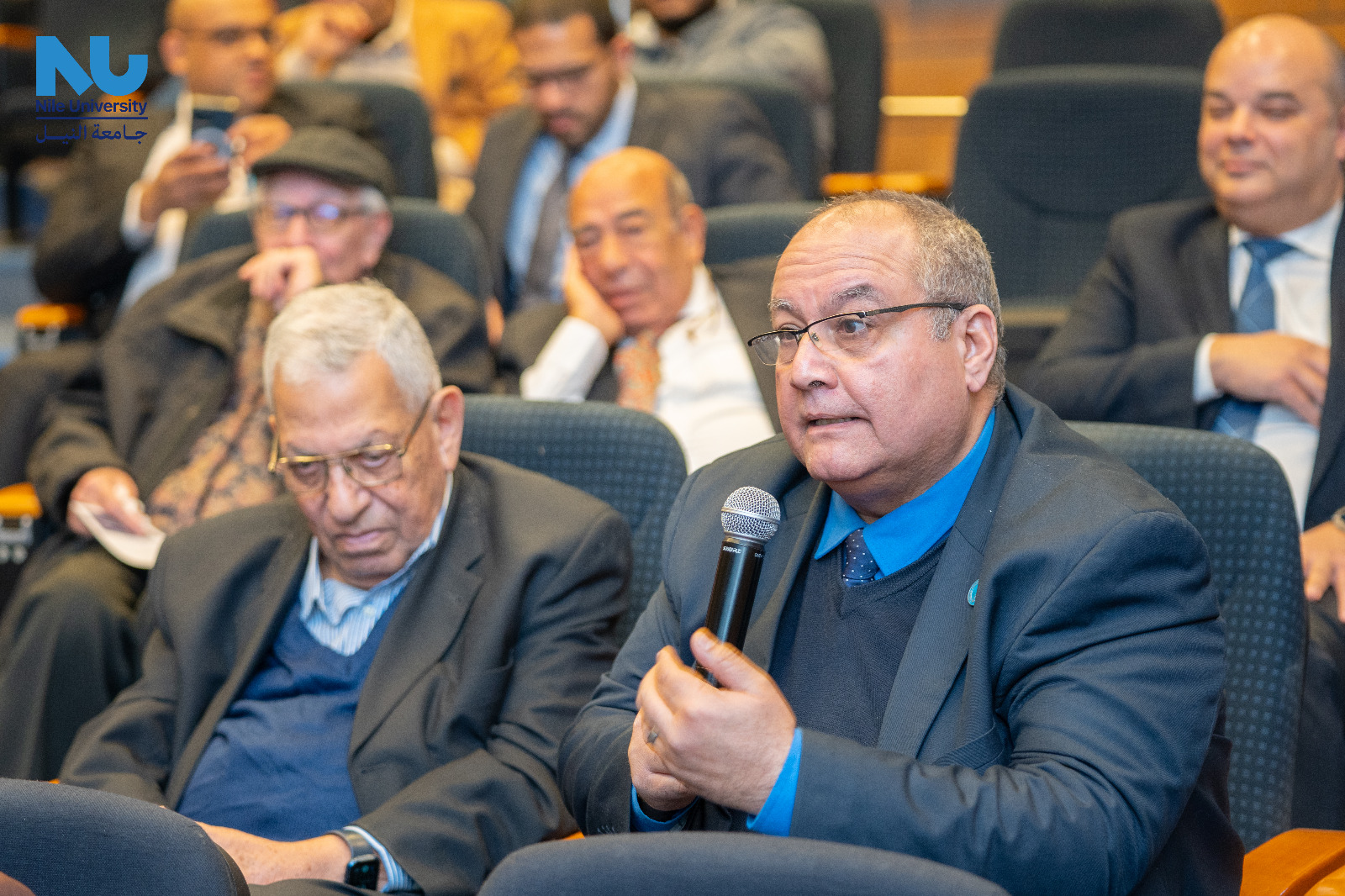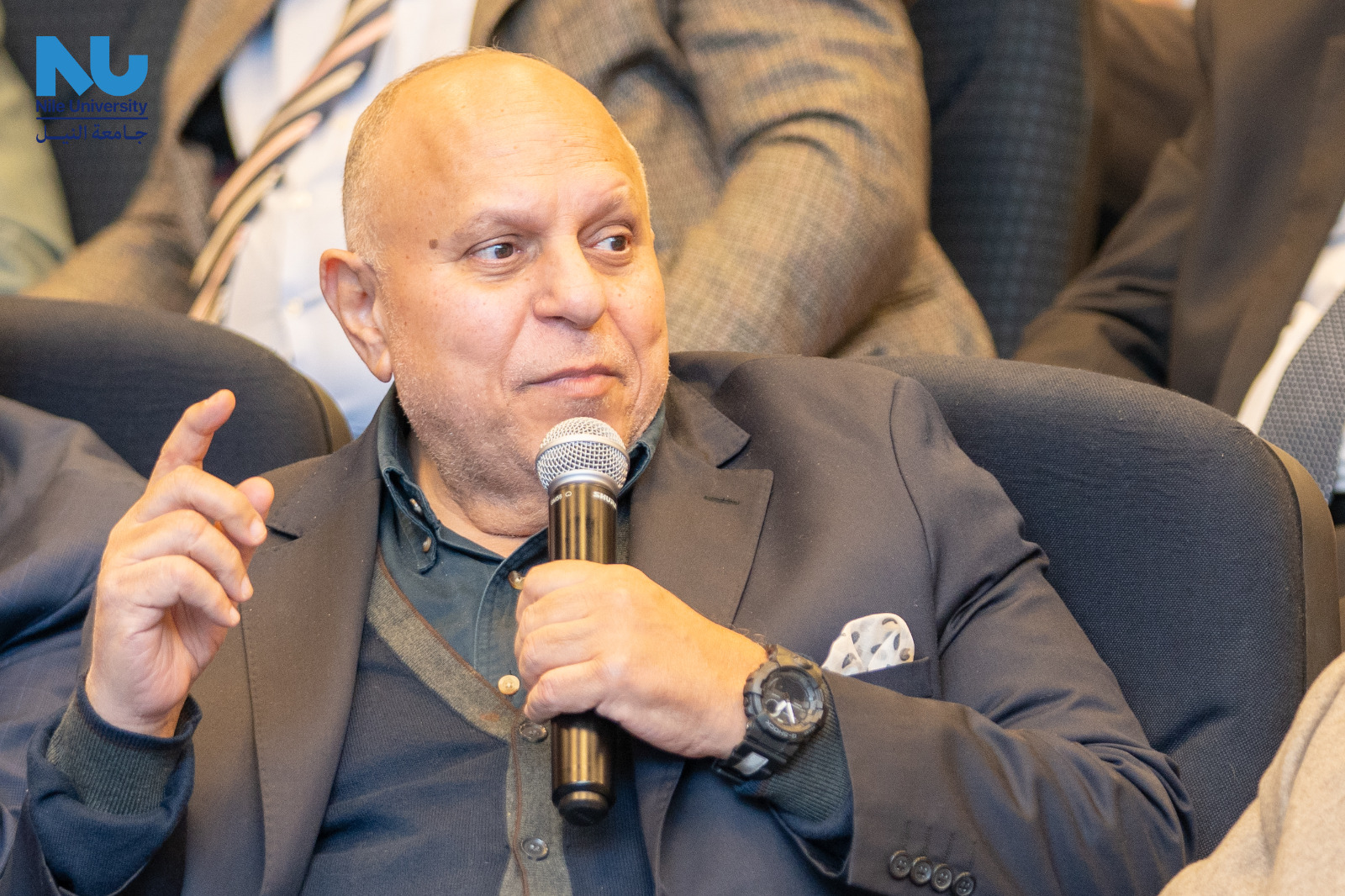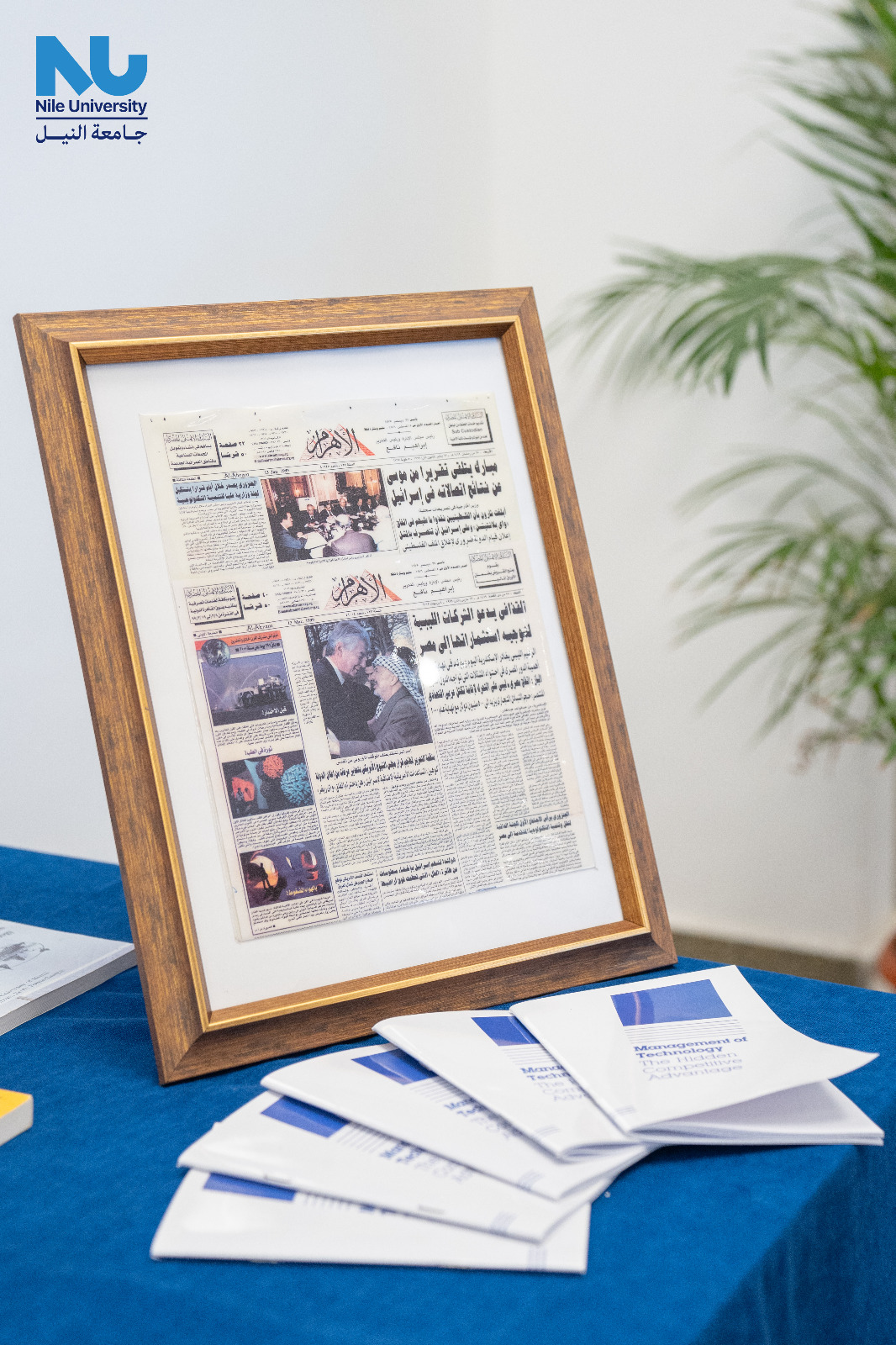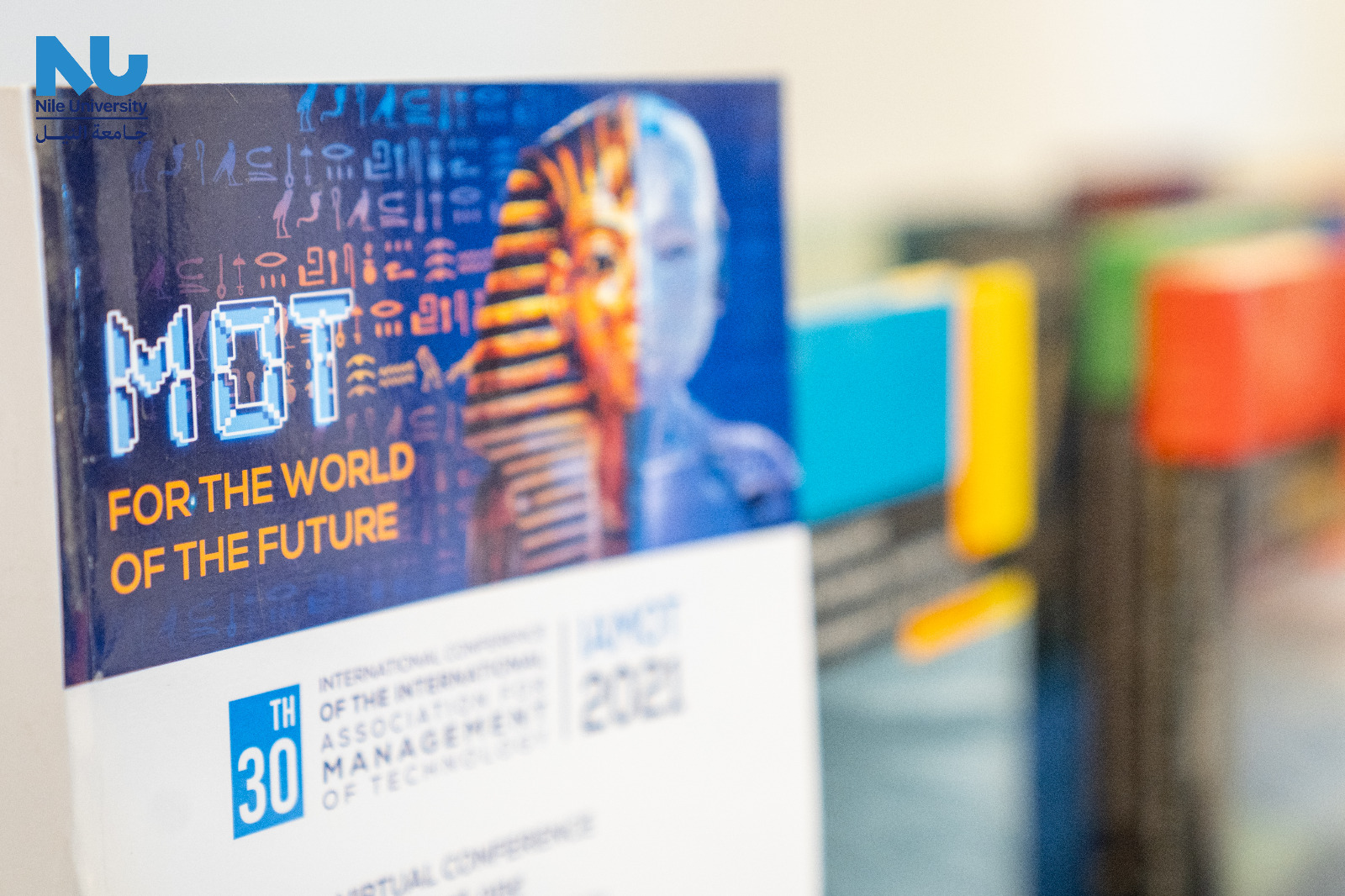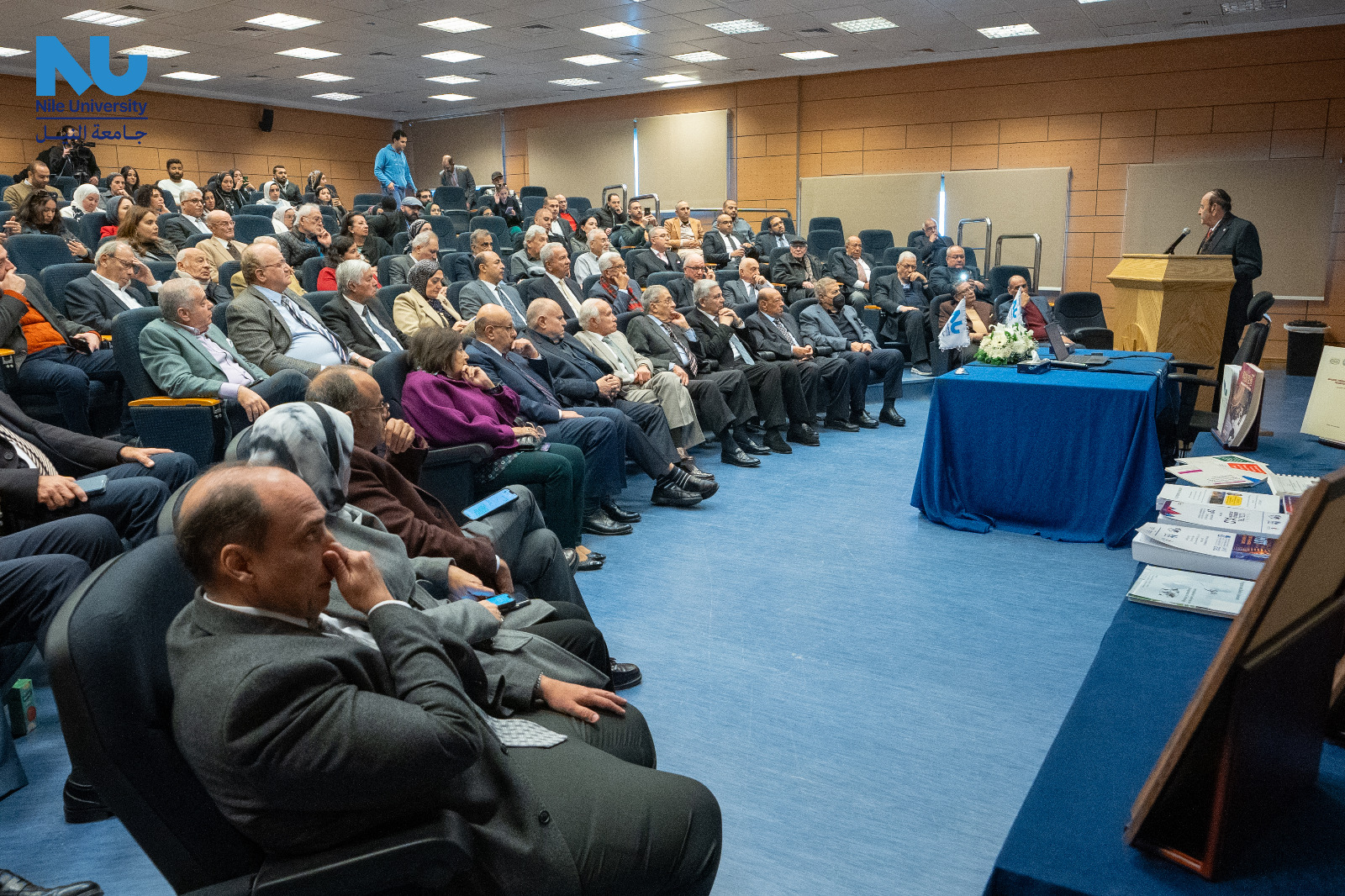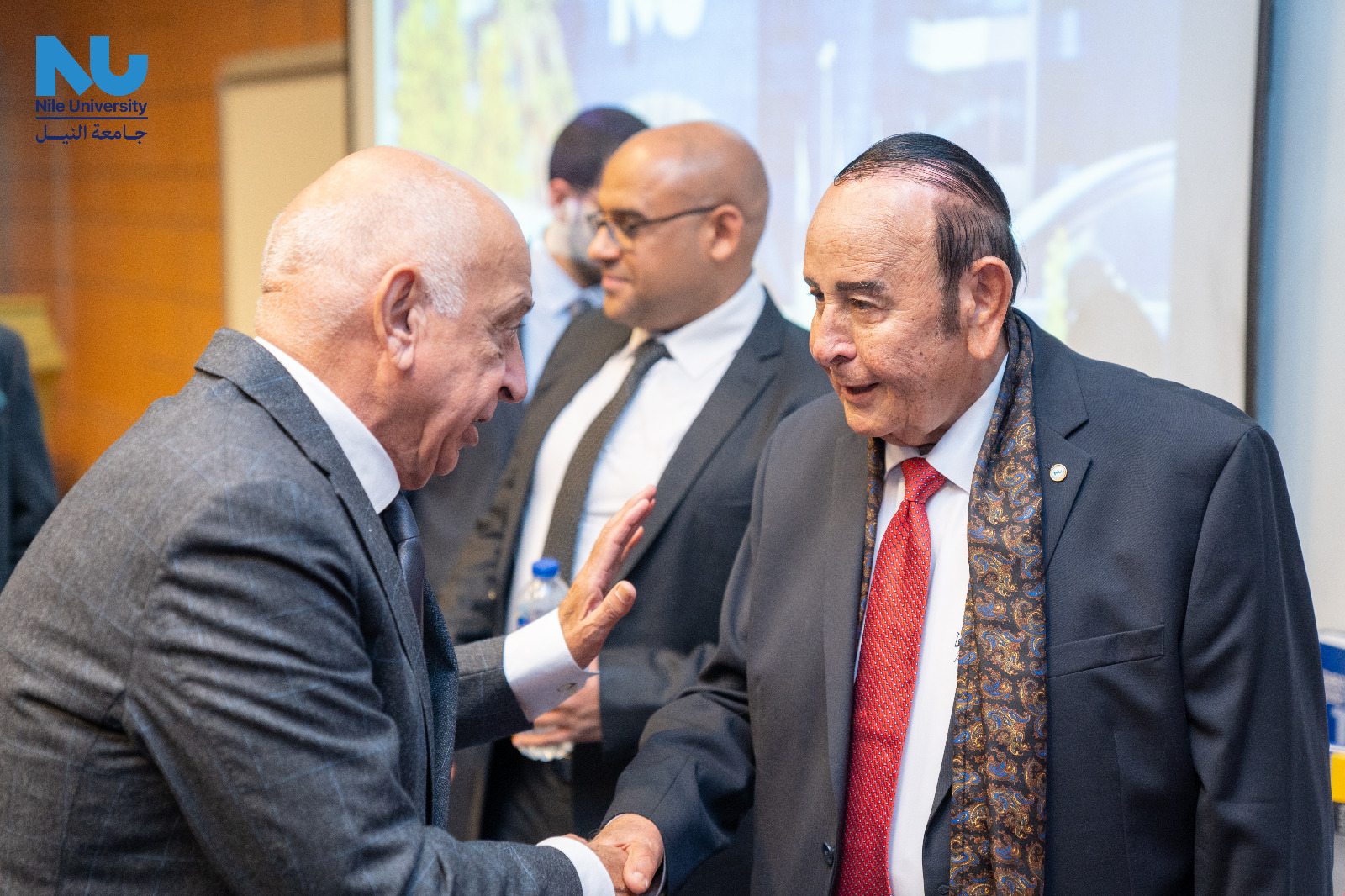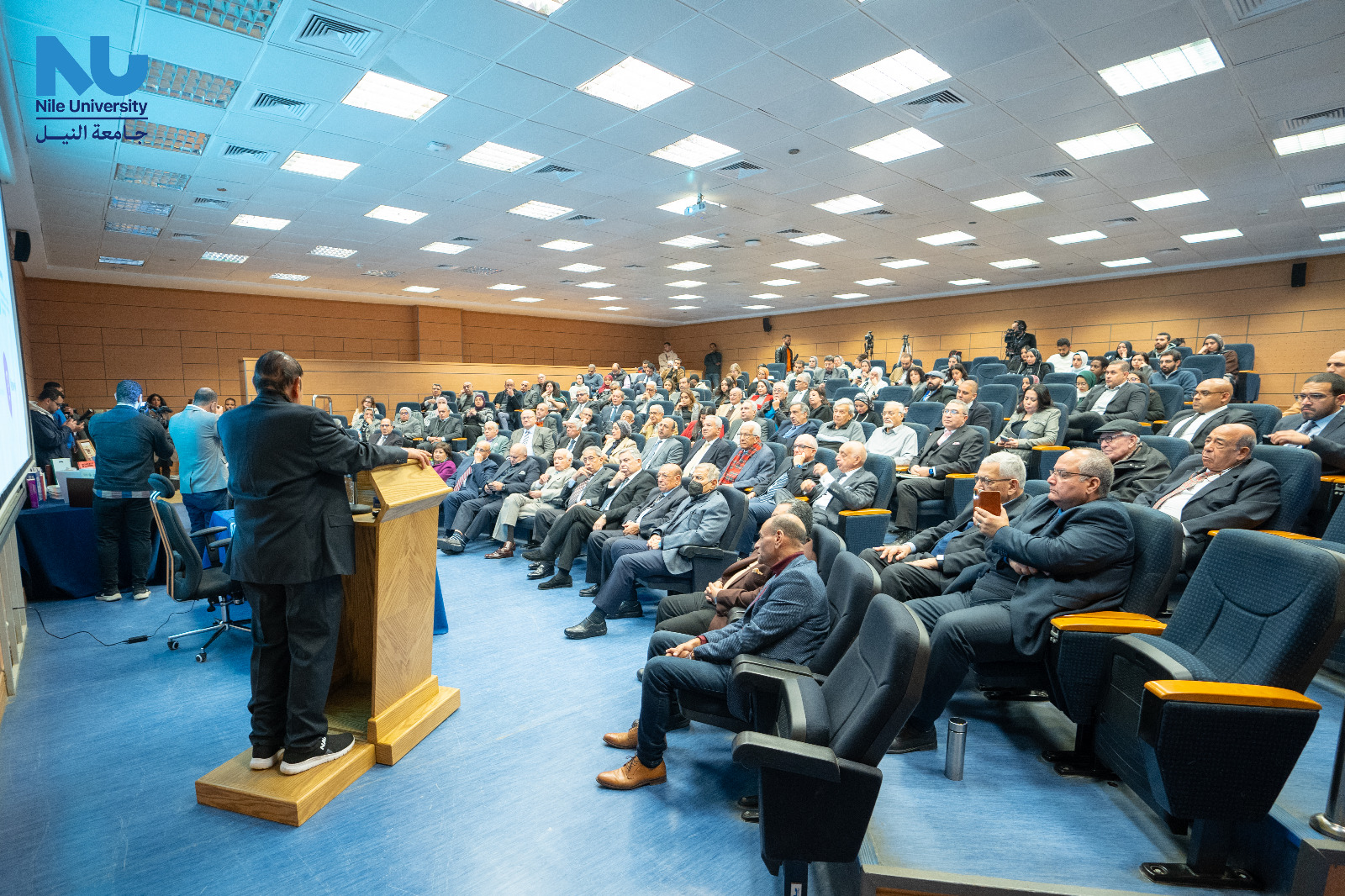Image
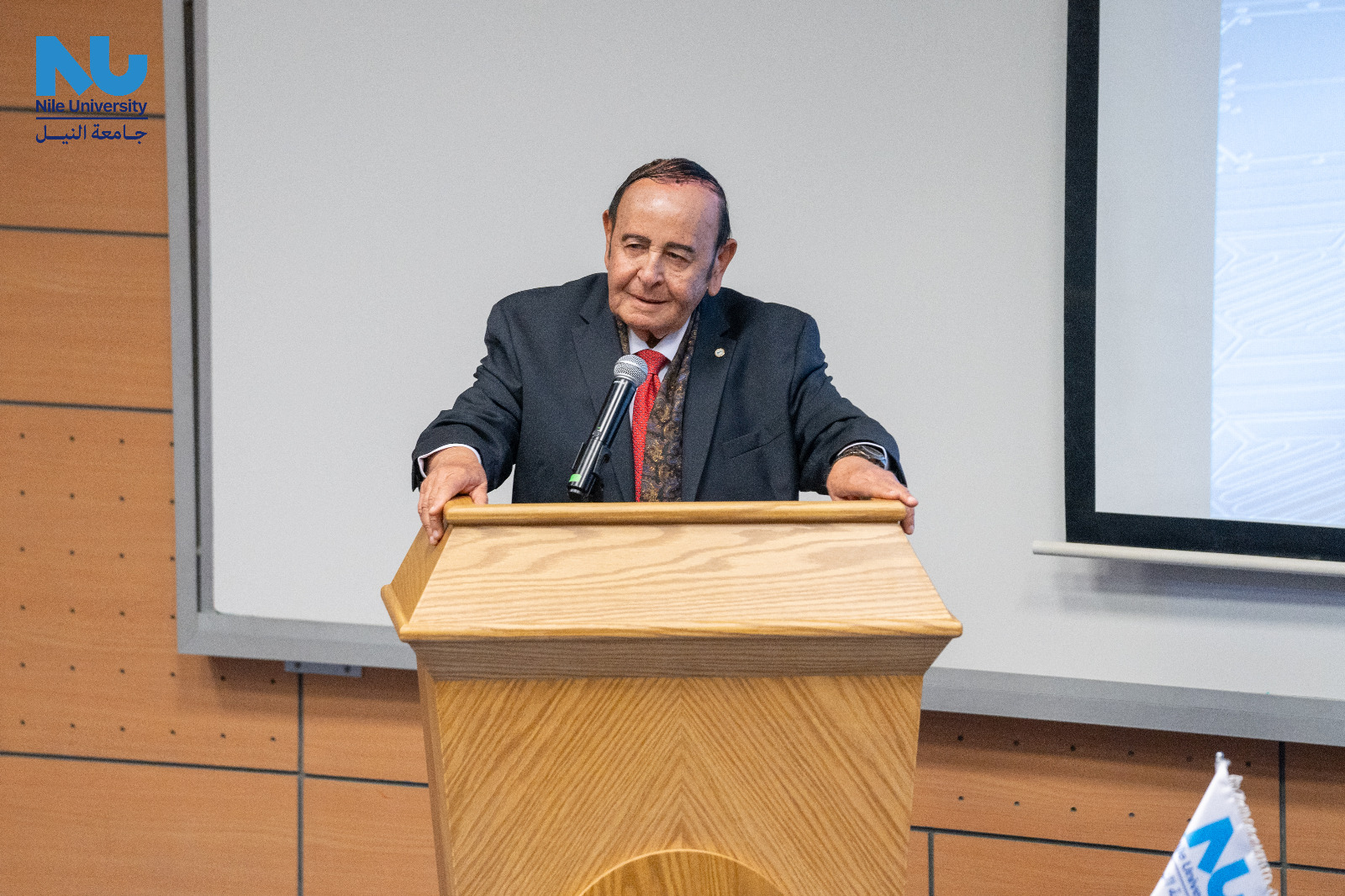
Technology Management: The Key to Competitiveness and Wealth Creation
Dr. Tarek Khalil Highlights Egypt’s Pioneering Role in Technology
Dr. Tarek Khalil, the Founding President of Nile University and the Founding President of the International Association for the Management of Technology (IAMOT) in the United States, emphasized the crucial need for developing digital technology capabilities and strengthening technology management to stay competitive in the future.
During his historic lecture at Nile University’s headquarters, titled “Technology Management: The Key to Competitiveness and Wealth Creation,” Dr. Khalil addressed an esteemed audience, including current and former ministers, technology and youth organization leaders, bank executives, technology industry professionals, and distinguished guests. He was also joined by Dr. Wael Akl, President of Nile University.
Technology: A System, Not Just Tools
Dr. Khalil underlined that technology is not merely a collection of tools but rather a comprehensive system built on knowledge, innovation, research, and development. He defined technology as “the method through which we achieve objectives using devices and software” and emphasized the importance of effective management to keep pace with the rapid technological advancements shaping the world.
Citing examples from global economic powers such as Japan, Germany, and Singapore, Dr. Khalil explained how these nations achieved remarkable growth through investment in research and development. In contrast, Egypt—once the cradle of knowledge—has lagged despite its historical role as a pioneer in science and technology.
Ancient Egyptians: The World’s First Tech Innovators
Dr. Khalil reaffirmed that the ancient Egyptians were the first to introduce technology to the world, as evidenced by hieroglyphic inscriptions and temple engravings. The hieroglyphic writing system itself was an early form of coding, later deciphered through the Rosetta Stone—a breakthrough that showcased Egypt’s deep-rooted expertise in complex communication systems.
He further drew parallels between ancient and modern technological breakthroughs, noting that codebreaking played a decisive role in World War II. The ability to decrypt German military communications altered the course of the war, thanks to Alan Turing, the legendary cryptanalyst considered the father of theoretical computer science and artificial intelligence.
Understanding the Game of Technology
Dr. Khalil introduced a framework for nations and organizations to succeed in the “technology game”, emphasizing the importance of:
- Knowing How – Understanding the methods and tools of technology.
- Knowing Why – Recognizing the reasons and purpose behind technological advancements.
- Knowing When – Mastering the timing and application of innovation for maximum impact.
He categorized technology into various classifications:
- New Technology
- Emerging Technology
- High Technology
- Low Technology
- Medium Technology
- Appropriate Technology
Lessons from History: Technological Breakthroughs That Shaped the World
Dr. Khalil highlighted key historical milestones that demonstrated the power of technology in shaping global events, including:
- The launch of Laika, the first animal in space (1957) – A technological shock that marked the Soviet Union’s advancement in space exploration.
- Sputnik, the first artificial satellite (1957) – A moment that changed global perceptions of technology’s role in geopolitics.
- Neil Armstrong’s moon landing (1969) – An event that symbolized human progress, with Armstrong’s famous words: “That’s one small step for man, one giant leap for mankind.”
- The 1970s Oil Crisis – A pivotal moment that reshaped global energy policies and technological innovations.
Technology as a Pillar of Economic and Social Development
In his concluding remarks, Dr. Khalil stressed that nations must adopt technology-driven competitive strategies across industrial, commercial, and financial sectors to ensure sustainable growth. The rapid rise of artificial intelligence and digital transformation presents an opportunity for countries to enhance their economic strength, create jobs, and ensure national security.
A Legacy in Technology Management
Dr. Tarek Khalil, a pioneer in the field of Technology Management, has played a key role in establishing this discipline globally. His expertise continues to shape the future of innovation, economic development, and technological competitiveness in Egypt and beyond.
